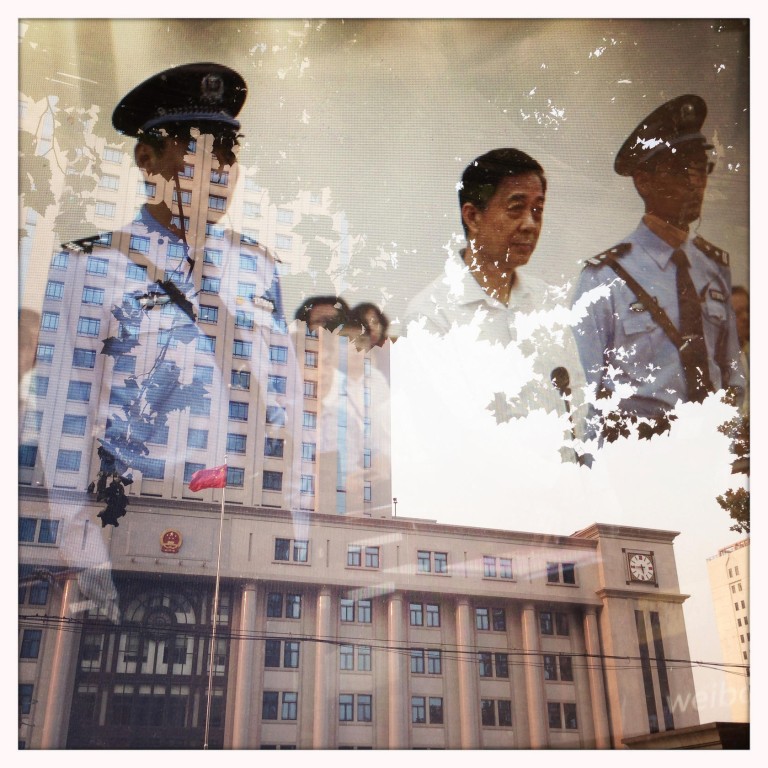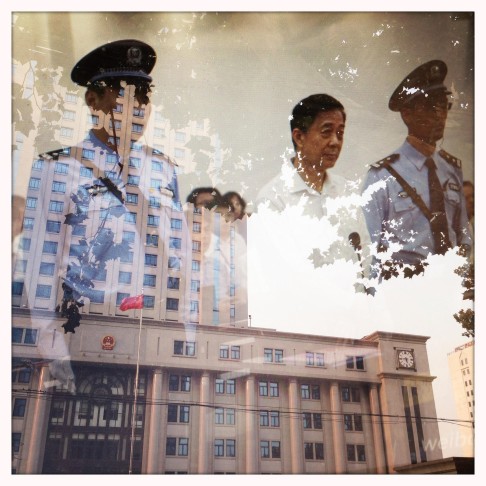
Corruption follows well-tested pattern
Given the risks involved, crooked high-ranking officials rely on relatives and trusted businessmen to ferry bribes to safekeeping
China is a land of closely guarded secrets, and the salaries of Politburo members are no exception.
But Yu Zhengsheng, a current member of the Politburo Standing Committee, disclosed at a meeting in 2011 that his monthly salary was 11,000 yuan (HK$13,850) when he was party chief of Shanghai, the newspaper reported at the time.
If such meagre salaries are the norm, then it would be impossible for senior officials to afford their children's school fees at exclusive private schools abroad, let alone fund a jet-setting lifestyle.
But Bo Xilai's trial revealed in lurid detail some of the schemes that enable modestly paid politicians to accumulate immense wealth through relatives and a circle of trusted businessmen.
Bo testified that his wife Gu Kailai's personal wealth exceeded 40 million yuan a decade ago. Gu was a renowned lawyer in the 1990s and owned a law firm with several offices across the mainland.

To avoid accusations of conflicts of interest, she closed the firm around 2000 and moved abroad to live with their son Bo Guagua, who was studying overseas.
However, Gu's immense personal wealth did not satiate the family's desire for more, prosecutors at his trial said. They accused Bo Xilai of taking bribes worth more than 21 million yuan, including a luxury villa in Nice, France. He was also accused of embezzling 5 million yuan in public funds while he was mayor of Dalian and then later as governor of Liaoning province from 2000-2002.
Bo distanced himself from the charges and said he was not aware that Gu and Guagua had taken the bribes.
However, officials have long taken tainted money via relatives to cover the trail of corruption, one academic says. "Taking bribes through indirect channels, mostly through family members or close friends, has become common practice among corrupt senior officials," said Wang Yukai, a professor at the Chinese Academy of Governance. "Through such means, corrupt officials set up a buffer and avoid being exposed directly. But this doesn't change the fact that they use their power to seek benefits through bribes.
"However, it's not easy for bribers to establish direct relationships with officials. They normally go through officials' relatives or friends acting as intermediaries."
Cheng Kejie, a former vice-chairman of the National People's Congress Standing Committee, took a big share of 40 million yuan in bribes through his mistress, Li Ping. The two decided to divorce their spouses and get married before being detained. In 2000, Cheng became the most senior official to be executed for bribery in the history of Communist China and Li Ping was jailed for life.
Another official, Liu Tienan , was a former deputy head of the National Development and Reform Commission who accepted massive bribes via family members. He was expelled from the Communist Party in August and faces prosecution for corruption.
Corrupt officials usually only trade their power for money when they feel safe. To reduce risks, they use businessmen they have known for a long time and who they trust can solicit bribes and funnel them to safe havens.
Liu Zhijun, the former minister of railways, received 49 million yuan in bribes from Ding Shumiao. In return, the Shanxi businesswoman's Boyou Investment Management Group, benefited greatly from high-speed rail projects, a personal passion for Liu. He received a suspended death sentence in July.
Similarly, most of the bribes Bo's family accepted came from the Dalian billionaire Xu Ming , according to prosecutors. In return, Bo lent strong support to many of Xu's business projects, ranging from a soccer club to a petrochemical plant.
Xu, 42, started Dalian Shide Company in 1992. Thanks to Bo Xilai's patronage, Xu developed the firm at breakneck speed and was named the mainland's 61st wealthiest person, with assets of 8 billion yuan, in 2008. He has been detained since March 2012.
"Corrupt senior officials only take bribes from a handful of people they trust. But they never treat these corrupt entrepreneurs as real friends on equal status," said Wang, from academy.
At his trial, Bo said of Xu: "He and I have nothing in common to talk about and are not on the same level. Who was I? The minister of commerce. Who is Xu Ming? How many chances does he have to talk to me? It's not logical to take Xu as a good friend of mine."
